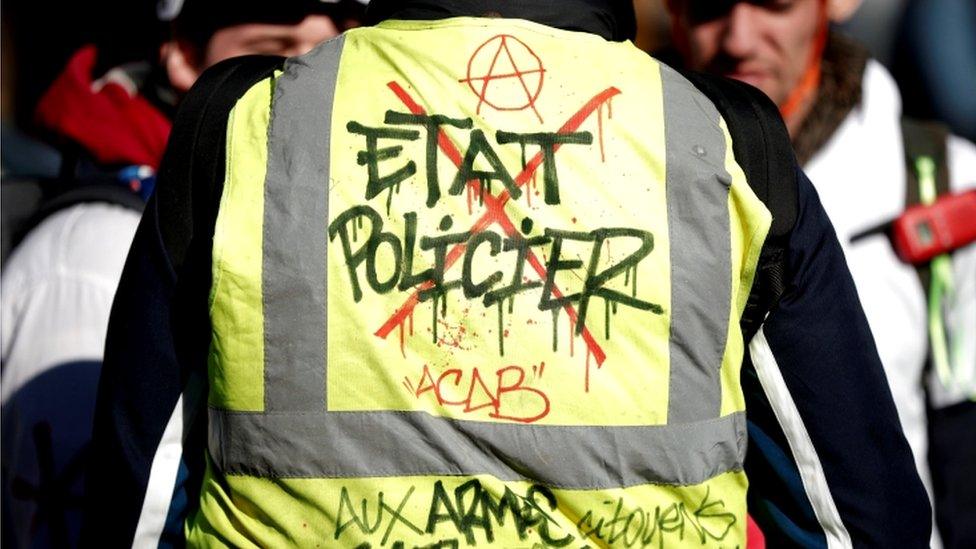Yellow vest protests: Injured protester's family to press charges
- Published
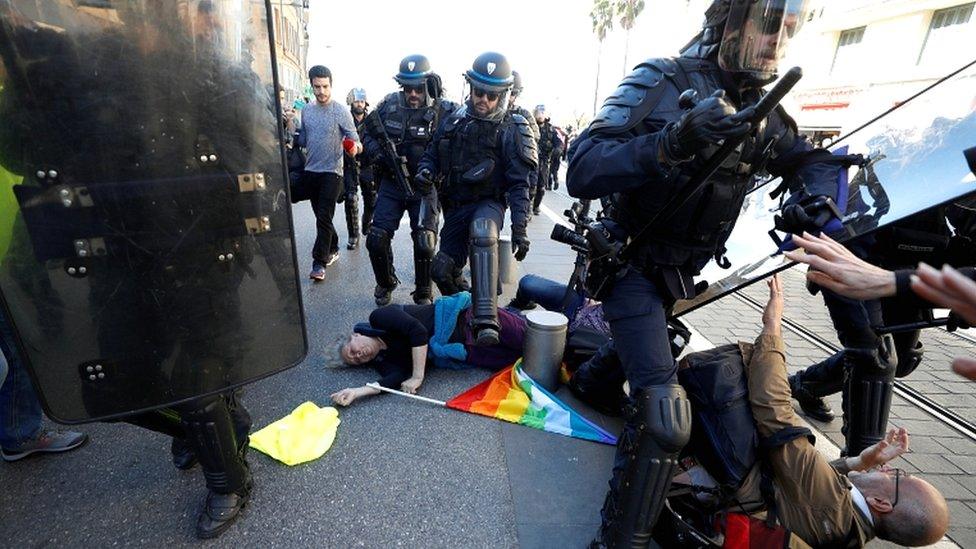
Geneviève Legay apparently fell and hit her head on a metal post during a police charge
The family of a 73-year-old French woman injured in a police charge at a protest are taking legal action.
Geneviève Legay fell and hit her head on a metal post during the banned "yellow vest" demonstration in Nice.
The incident, captured on video by demonstrators and journalists, is being investigated.
Ms Legay, who sustained skull fractures and bleeding next to the brain, is reported to be in a stable condition in intensive care.
Ms Legay, a spokeswoman for the local arm of an anti-globalisation NGO, had come to defend the right to demonstrate, her daughter said.
Protests had been banned in a large part of of the southern city's centre.
The activist's family plan to file a complaint for wilful violence by armed persons holding public authority on a vulnerable person, their lawyer said.
The Nice public prosecutor has opened an investigation to determine the origin of her injuries.
Soldiers were deployed for the first time during Saturday's protests to back up police and help maintain security. Protesters had been banned in the centres of many large French cities.
But there has been widespread criticism of anti-terrorist forces being used to control crowds, with politicians from across the political spectrum voicing concerns.
'Tough action'
Some 40,000 protested on Saturday across France, an increase from 32,000 protesters last weekend, the interior minister said.
After last week's riots, which resulted in more than 120 arrests, French President Emmanuel Macron had vowed "tough" action.
Saturday's protests were largely peaceful and did not match the scale of those on 16 March, when boutiques and buildings in Paris along the Champs-Elysées were vandalised. Clashes also took place in cities including Lille, Lyon, Nantes, Toulouse and Montpellier.
The "yellow vests" ("gilets jaunes") started protesting in November, initially because of fuel tax rises.
The movement soon evolved into a broader rebellion against perceived elitism, for which activists blame Mr Macron.
Concessions were offered to protesters late last year as the movement was picking up speed - including €10bn (£8.5bn; $11bn) designed to raise incomes of the poorest workers and pensioners. But this has not put an end to the discontent.
For the past month, the president has toured France, listening to local mayors and citizens as part of his "grand débat" - or big national debate.
- Published23 March 2019
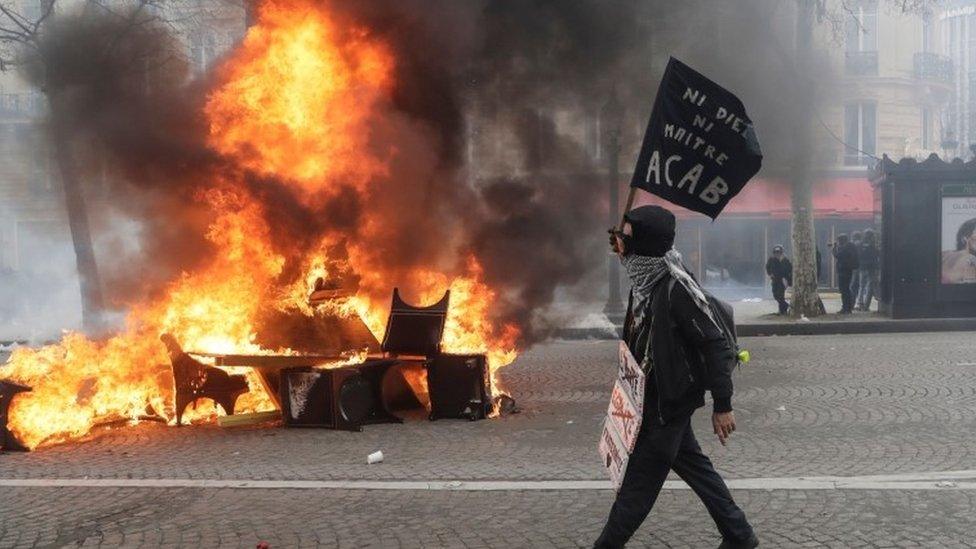
- Published16 March 2019
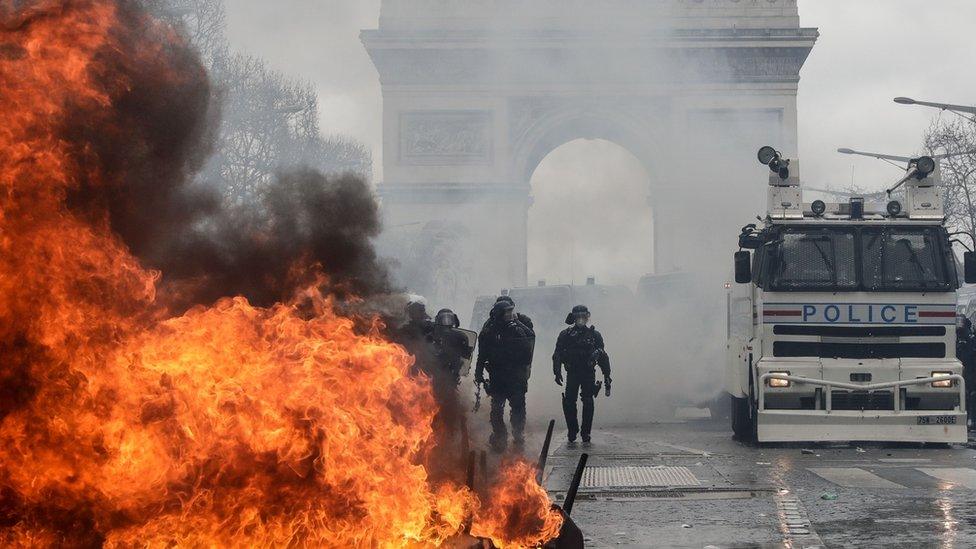
- Published16 March 2019
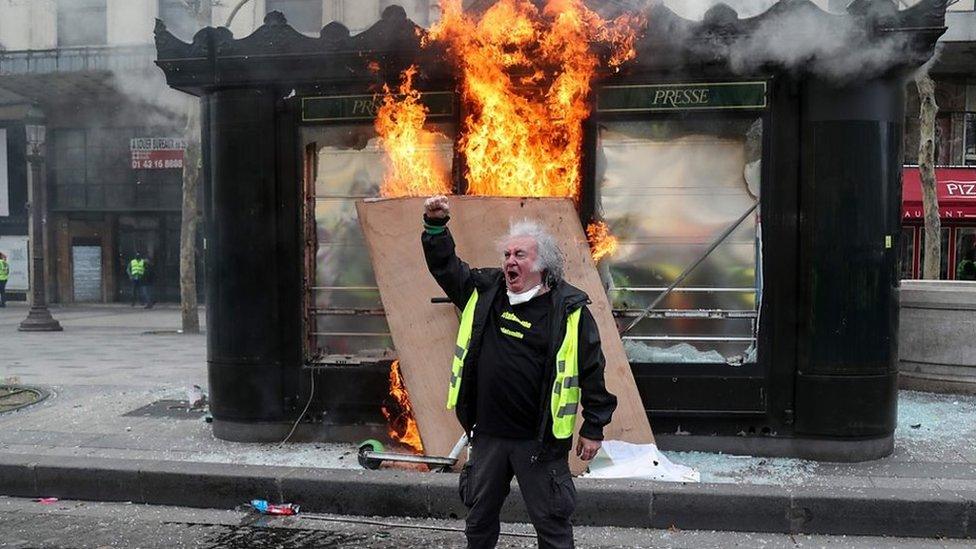
- Published27 February 2019
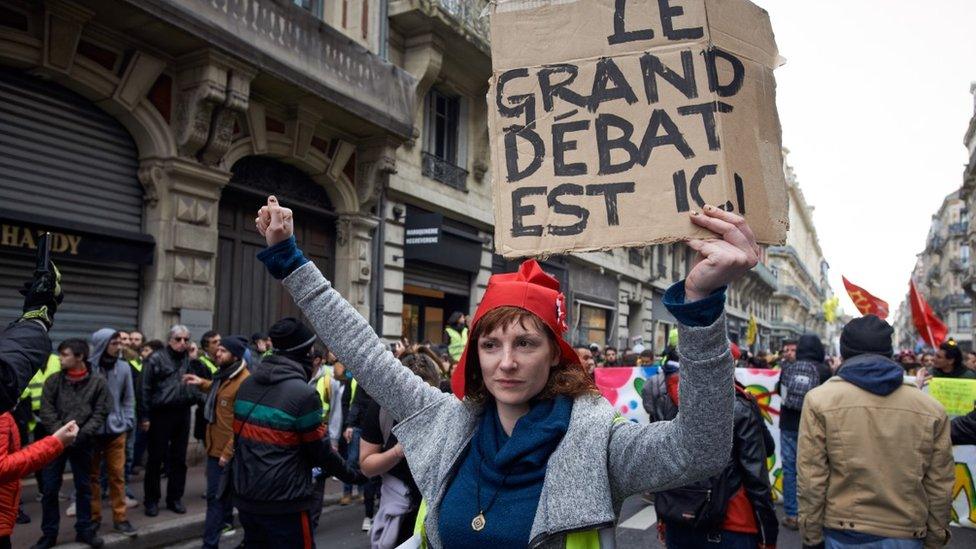
- Published19 February 2019
